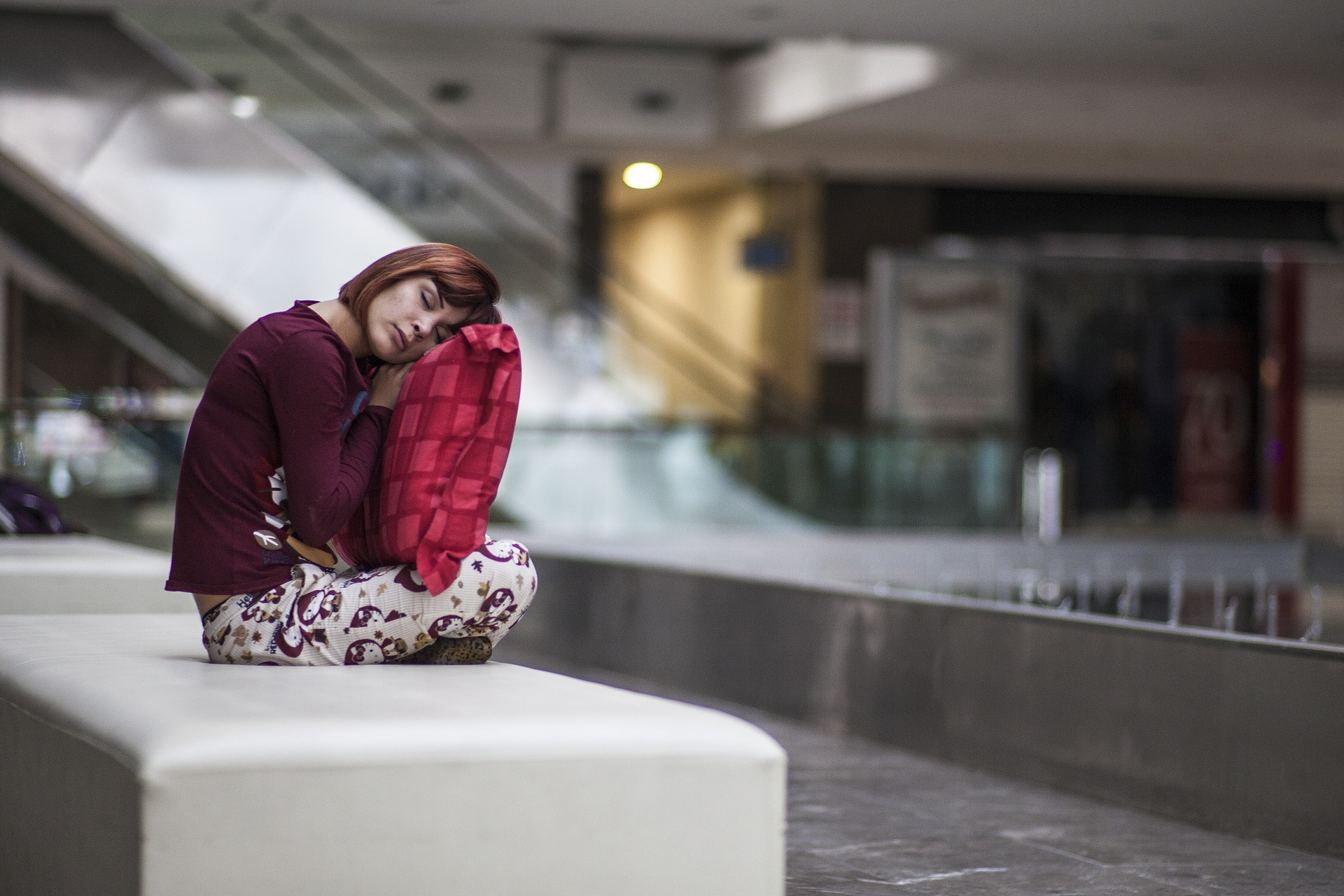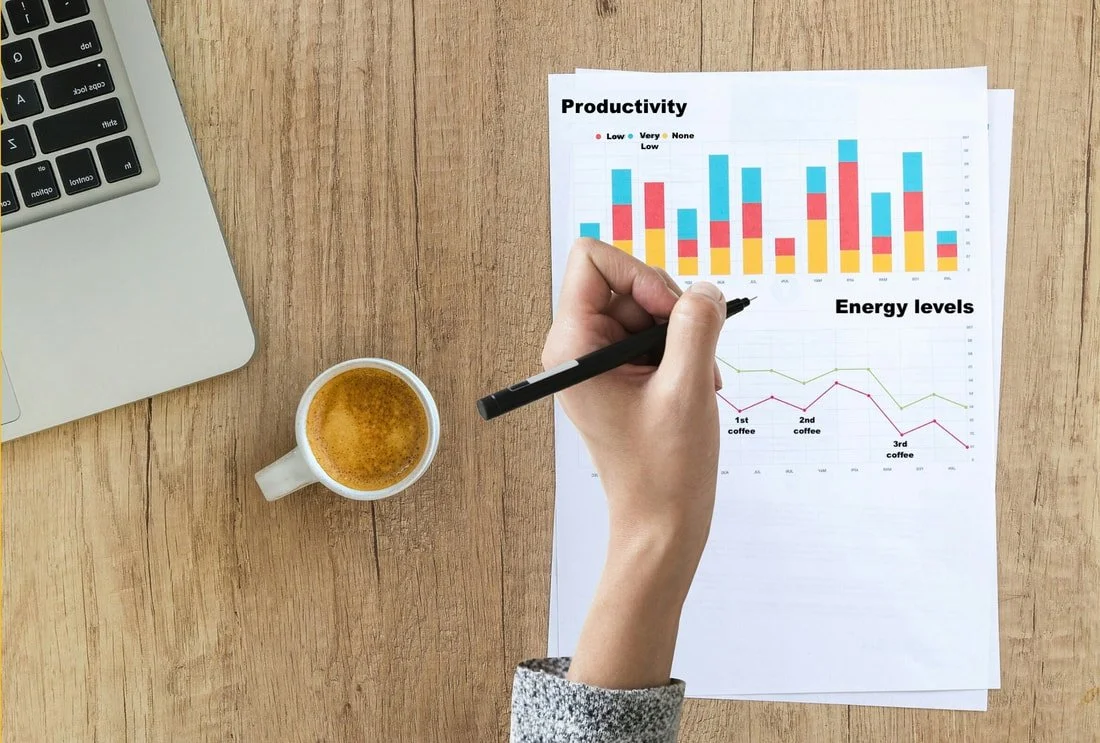
SLEEP
You know, that frustrating feeling when you feel tired all day but unable to sleep at night, a condition commonly referred to as being ‘wired and tired’?
Or, perhaps you've gone through a period of insomnia where you've struggled to get any sleep for three or more consecutive nights. Maybe you've faced ongoing sleeping difficulties, such as trouble falling asleep and staying asleep, that never seem to improve.
Or, you may have been woken up by anxiety in the middle of the night, your body temperature much higher than it should be and making it difficult to fall back asleep…
If this is you, then, it is time to take your sleep problems seriously.
START YOUR DAY RIGHT
If you do not feel refreshed upon waking, your first step may be the most decisive action that may affect your sleep at the end of the day.
-
BREAKFAST
The most important meal of the day?
It depends on what you are fuelling your body with or actually aren't. You may also over-extend your overnight fast, forcing your body to rely on stress hormones for energy.
Timing is also crucial...
-
THE ANGEL IN DISGUISE
Coffee may be your worst enemy if you are desperate for that first cup in the morning. And, like any drug (and food), overdosing is also possible.
Have you ever monitored how many cups you drink in a day, each day, and what happens if you don’t?
-
SNACKS
Blood sugar imbalances are directly linked to poor energy levels, fatigue and lower resilience, as well as anxiety and depression, and social isolation. These problems are also associated with recurrent infections and longer recovery, diabetes, obesity, cardiovascular disease and other metabolic disorders.
Tip:
The last thought of the day is also the first thought in your mind as you wake, so be mindful about the thoughts you want to carry in your sleep and give energy to.
Tip:
Stay in control of your blood sugar levels and follow simple advice to make big changes in your life, allowing you to go back to sleep, and reach a deeper, healing sleep every night.
Why would you feel empowered by listening to me?
The answer is very simple.
Here is my story:
Due to the genetic makeup passed on by my parents, I am not able to process (and effectively detoxify) neurotransmitters, like dopamine and epinephrine (adrenaline). Epinephrine and cortisol, the main stress hormones released by the body, are known to interfere with melatonin production, which means that a higher concentration of one impacts the other, and subsequently sleep (and the quality of sleep). Because at the time my body should be producing melatonin, it is still busy trying to suppress the effect of cortisol and, therefore, I am predisposed to be a night owl (confirmed by specialist DNA tests!)
This has affected my sleep since a few days old (my mum can share many stories of the things she had to experiment with to help me sleep).
I want to quickly add that a stressful pregnancy makes a stressed-out baby, and the concentration of cortisol a baby is exposed to is dose-dependent, which means the more stressed the mother, the more physiological changes the foetus goes through— naturally, the foetus is being prepared to live in a dangerous world and, potentially, food scarcity. More is discussed in my internationally published book ‘Energise - 30 Days to Vitality.’
To this day, I am still working on my sleep. Some nights are amazing and some nights are really bad, however, I am more able to deal with bad nights and look forward to the next night with open arms, rather than dread.
A bad night is not necessarily getting some sleep and waking up several times a night. A bad night for me is one night (or 3 consecutive nights or more) without any sleep at all. Often, I work through the night because I either do not feel tired enough to sleep or I have tried 4 to 5 times to sleep but it hasn’t worked.
Typically, I apply the 15-minute rule. After the fourth time, I usually understand that my brain has no intention of switching off.
I understand my body better now and usually can work on my sleep by setting new habits during the day, particularly when I am under stress and have to multitask. By being in control of the stress response during the day, I am able to sleep better. This was not possible a few years ago.
Sleep is very often disturbed by our daily activities, and often poor sleepers tend to work shifts, work long hours (I have been a professional chef after all, working on average 12-20 hours a day for over 30 years), and tend to be night owls, having better levels of concentration at night.
I have written the best chapters of my books Energise - 30 Days to Vitality and Detox before Energise at night, away from distraction and in the best possible quiet environment.
Putting this aside, I am no longer in my twenties, not even my thirties, and I do not recuperate in the same way — if at all — after a bad night's sleep. I have been on a journey for the last 12 years also.
This is quite interesting because it was when I reached 12 years old that my parents gave up trying to help me sleep. They spent a huge amount of time, energy and money to find a specialist that would help me sleep (and my parents too).
So far, I have tried almost anything to make me sleep, or at least help me sleep. I have tried drugs, supplements (that claim to do wonders, but never deliver; or those containing relaxing herbs but are — to me — extremely stimulating, like lavender and hops; or those that put my body in a total state of relaxation but not my brain CBD oils), acupuncture (with amazing results, but only momentary), hypnotherapy (relaxing and soothing, but no improvement on sleep quality), sleep clinic (outpatient for over 2 years), and CBT for insomnia (still ongoing).
I also tried tissue salts, Bach flowers, melatonin, GABA and 5-htp supplementation, adaptogenic complexes, and many many more.
I have also learnt to become more present, mindful and grateful for each moment, and this has had a tremendous effect on my sleep (and mental well-being). Perhaps, analysing the way I feel is enough to understand where I am coming from (each day) and what resources are available to me to help me sleep.
Meditation doesn’t work for me. I also see this in my practice almost every day. Typically, people with strong constitutions tend to engage in more strenuous exercise and need to exhaust themselves to sleep. These are the people who go to the gym late in the day, those who party hard and go home to ‘crash’, or those that can work up to the wee hours of the morning — until their brain has had enough and sleep is the only option left.
I have dedicated entire chapters in Energise - 30 Days to Vitality to sleep and restoring circadian rhythms, as well as stress and techniques to help readers find balance in their lives and learn to be the drivers of their own lives and enjoy the journey.
BENEFIT FROM MY REAL-LIFE EXPERIENCE AND EXPERIMENTS IN EASY-TO-ACHIEVE STEPS.
I will help you address all parts of your life, let it be your diet and lifestyle, and most importantly the way you use your thoughts, and help you destroy your museum of old beliefs and replace those with more constructive thoughts to bring your current state into a more resourceful state, one that is ideal for sleep.
I will share with you tips that you must follow to help you sleep. These may also include the use of technology, identifying patterns, your work-life balance, and much more.
Since, April 2023, Nutrunity is proud to partner with Doctor Dipesh Mistry, Psychiatrist & Sleep Physician, to help more people get back to sleep by combining naturopathic medicine and CBT for insomnia: a complete holistic approach to sleep.
Sleep - The latest evidence
6 Benefits of sleep.
FEATURED BLOGS






